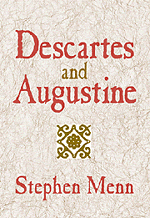1 - Descartes and the history of philosophy
Published online by Cambridge University Press: 04 August 2010
Summary
Descartes stands at a turning-point in the history of philosophy. The old philosophy of Aristotle had lost its credibility, and the new philosophies of the Renaissance, planned to replace it, turned out to be dead ends. It was Descartes, with such contemporaries as Hobbes and Gassendi, who staked out the road leading, past many further twists and forks, to the philosophy and science of today.
In these circumstances it is natural for modern philosophers to turn back to look at Descartes. Much good interpretive work has been done, and often it has been concerned to compare Descartes' philosophy with the philosophies of his contemporaries and predecessors. Especially in France, which has devoted itself most intensely to the study of its national hero, scholars have investigated the continuity or discontinuity of Descartes' thought with earlier philosophy, particularly in the scholastic and Augustinian traditions. By setting Descartes' thought in relation to these earlier traditions, these scholars have tried to clarify the origin and nature of modern philosophy as such, and of its complicated relations to science and to religion. Both because of his historical importance and because of his intrinsic merit, Descartes is an ideal case study for anyone who wishes to assess the extent of constancy and change, of harmony and disharmony in the history of philosophy; for anyone who wishes to see how far an old philosophy can survive and how much it can contribute in a new scientific or religious setting; and for anyone who wishes to draw a moral for the present and future of traditional philosophy.
- Type
- Chapter
- Information
- Descartes and Augustine , pp. 3 - 17Publisher: Cambridge University PressPrint publication year: 1998



